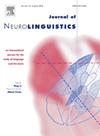Communication, specifically the elements crucial for typical social interaction, can be significantly affected in psychiatric illness, especially depression. Of specific importance to conversational competence are familiar expressions (prefabricated expressions known to the language community) including formulaic expressions (conversational speech formulas and idioms; these are high in nuance) and lexical bundles (fixed linguistic segments that are prevalent in naturalistic conversation; low in nuance). The goals of this study were to examine familiar language production in the naturalistic, conversational speech of individuals with treatment-resistant depression before and after receiving surgical deep brain stimulation of the subcallosal cingulate white matter pathways and to compare their performance to healthy adults’ familiar language use. Results revealed fewer conversational speech formulas (typically nuanced) produced by those with depression pre- and post-operatively as compared to healthy controls. There was an increase in the production of non-nuanced familiar expressions (largely lexical bundles) and a decrease in nuanced expressions (formulaic expressions) post-operatively when compared to the pre-operative condition for those with depression. These results conform to a recent model that distinguishes three distinct classes of familiar language, based on linguistic and neurological criteria. This study offers a first look at familiar language in depression and provides a foundation for further study into the pragmatic components of communication to help address the often-reported diminished social connectedness experienced by those with depression.


